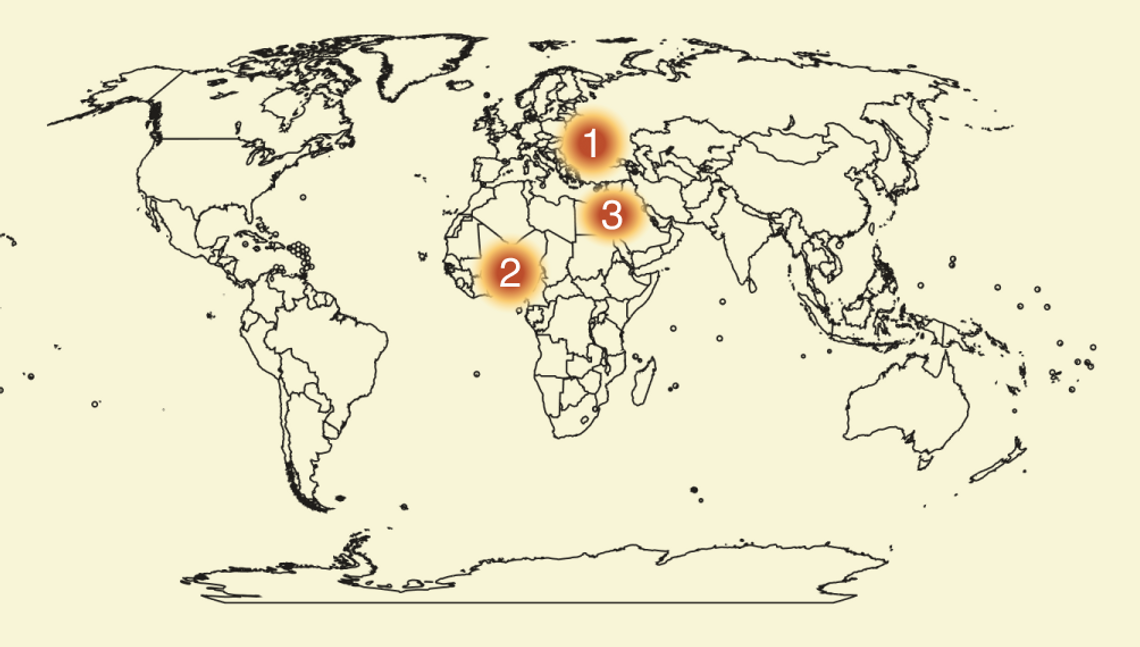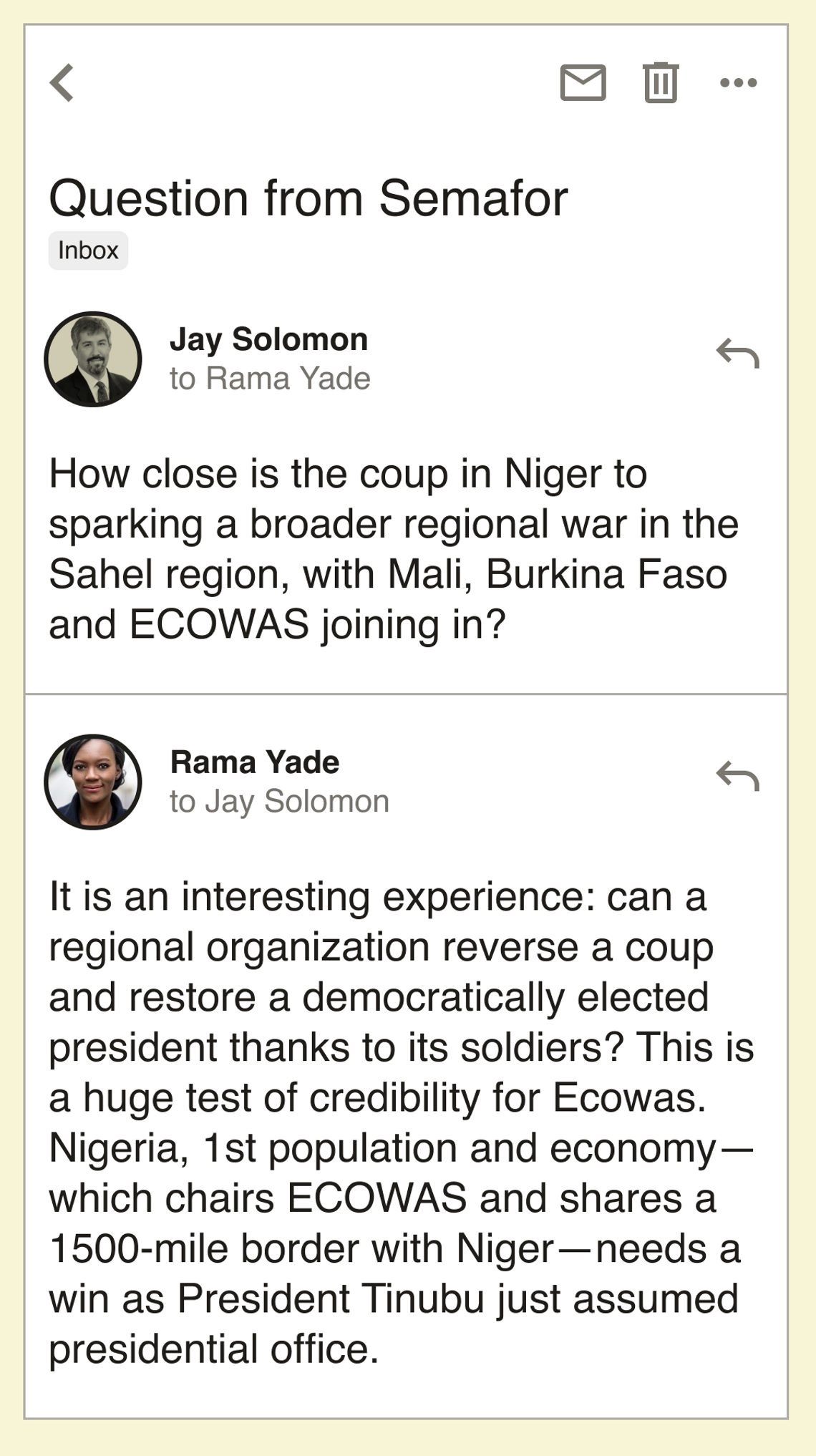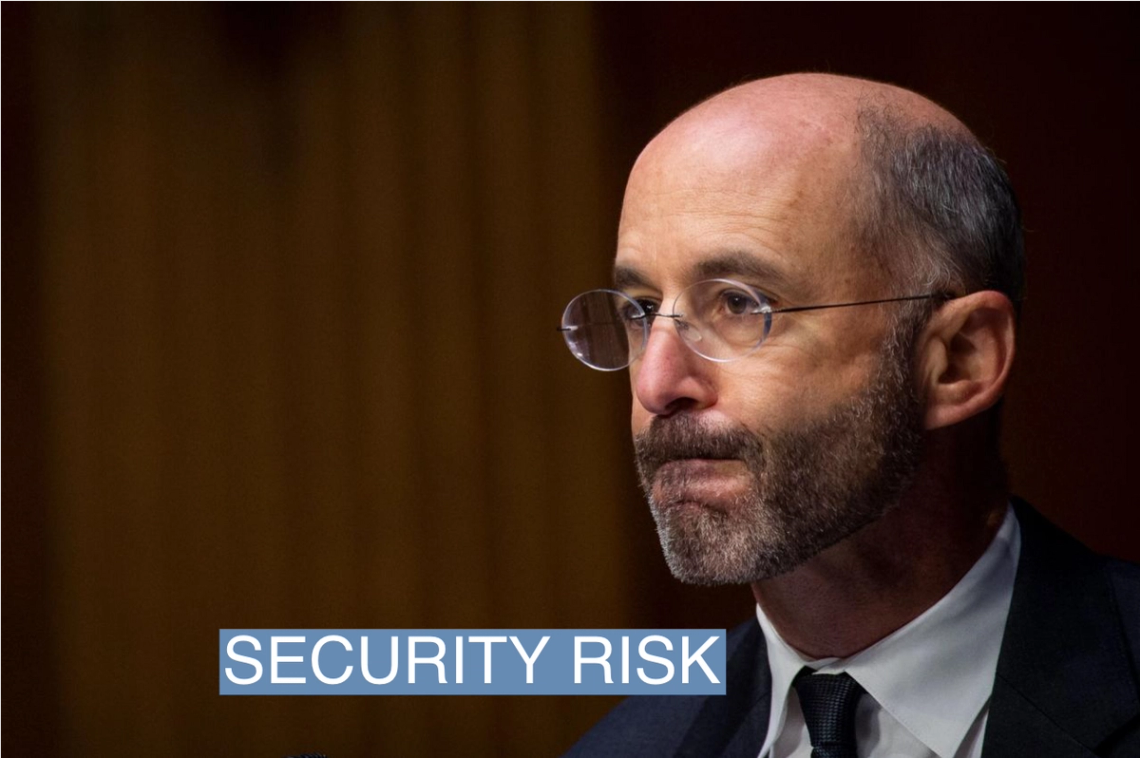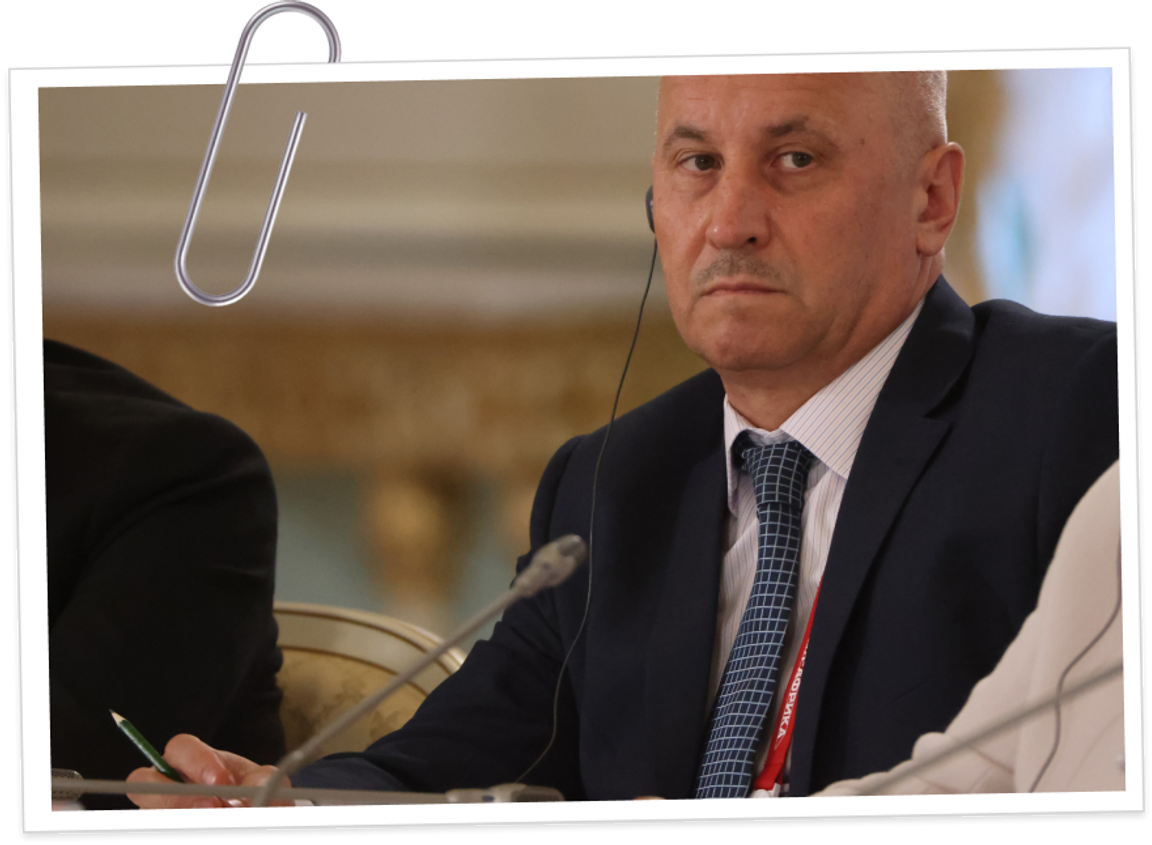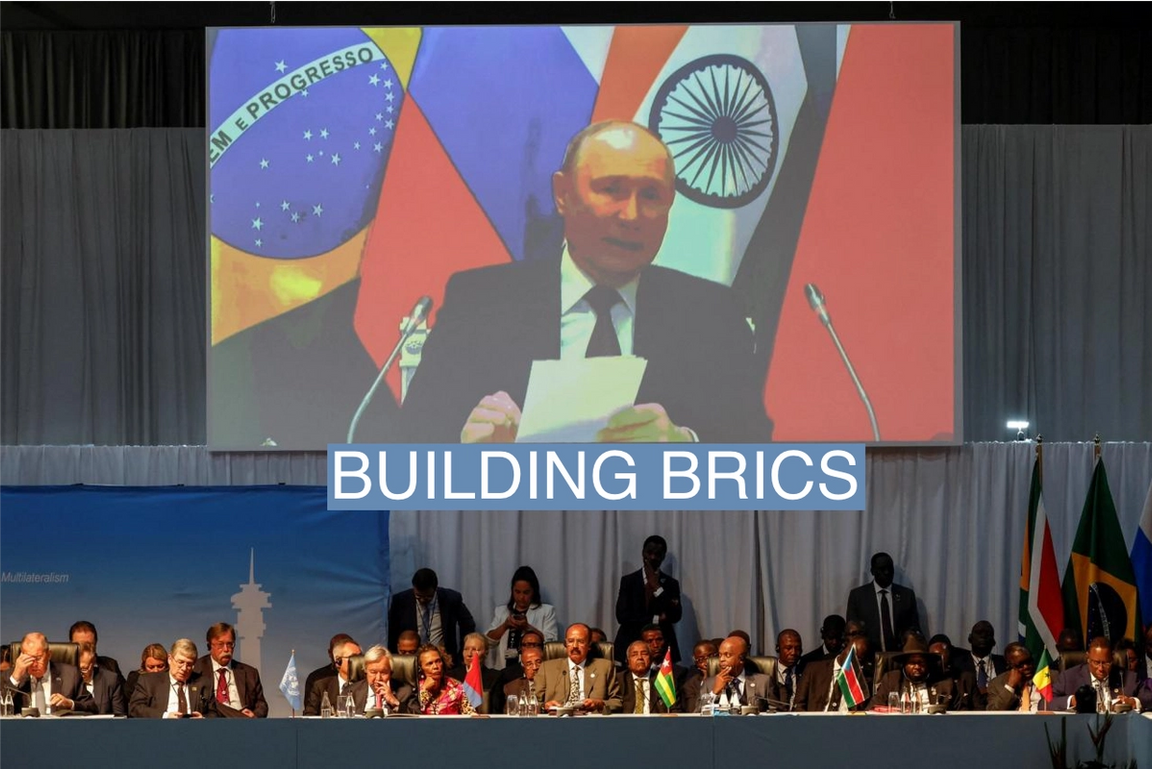 MARCO LONGARI/Pool via REUTERS MARCO LONGARI/Pool via REUTERSTHE NEWS A new world order may be forming faster than Washington expected. The convening last week of the five original members states of the BRICS geopolitical bloc — Brazil, Russia, India, China and South Africa — and the announcement in Johannesburg of the inclusion of six more countries next year, will challenge U.S. and Western positions on a range of military, economic, and technology issues in short order, current and former U.S. officials and international analysts told Semafor. The preeminent role of China and Russia in growing this coalition, and their successful wooing of both U.S. partners, such as Saudi Arabia, Egypt, and the United Arab Emirates, and adversaries, like Iran, was almost unthinkable until recently. The Kremlin’s war in Ukraine will likely be the first place where the BRICS’s influence will be felt, according to these officials and analysts. The Biden administration and Europe have been seeking to forge a united front with developing countries, often referred to as the global south, to isolate Moscow economically and diplomatically to force Vladimir Putin to end the war. But this effort has been resisted by the BRICS’s three original democratic members — Brazil, South Africa, and India. And this significant expansion of BRICS will give countries even more space to resist American and Western pressure. (Host South Africa said 40 additional countries are seeking membership.) BRICS’s emergence will have a significant impact on multiple other strategic fronts in the coming years as well, said these officials and analysts. The attendees at last week’s Johannesburg summit were particularly focused on forging a financial system far less dependent on the U.S. dollar and Western institutions like the World Bank. Success on this front will help shield incoming BRICS members, such as Iran, who are heavily sanctioned by the U.S. for their national security policies, such as the pursuit of nuclear technologies. China, Russia, and Iran have also signaled their desire to expand their military alliance to include other non-Western countries. Beijing and Moscow have been conducting expansive joint-naval exercises in recent months, and Iran has been providing drones and munitions for Russia’s war efforts. These countries could seek to turn BRICS, along with the China-led Shanghai Cooperation Organization, into a security forum in the coming years, potentially to challenge NATO. “Any hitching of strategic wagons to China and Russia will have significant consequences for these countries and their relationships with the U.S. and Europe,” said Richard Goldberg, who served as a senior official on the Trump administration’s national security council. “The question is: What will BRICS actually try to do?” JAY’S VIEW The BRICS countries have been clear about their desire to develop a multipolar world, in which the U.S. — or two Cold War camps — can’t dominate strategic and economic matters globally. South African President Cyril Ramaphosa, the summit’s host, told attendees: “The BRICS are starting a new chapter.” But forging this multipolar world is easier said than done. The U.S. and its allies have put in place over the past 75 years military and financial systems that limit, in many ways, countries’ freedom of action. Saudi Arabia, the UAE, and Brazil all appear intent to play both sides in the growing competition between Washington and the West on one side and Beijing and Moscow on the other. But the challenges to this approach are already appearing. Take American sanctions. The Treasury Department has established so-called secondary powers: This means Washington can penalize any country doing business with entities blacklisted by the U.S. As BRICS grows, its members will be committed to integrate countries like Iran and Russia economically. But this could place Riyadh, Abu Dhabi, and Cairo squarely in the crosshairs of U.S. sanctions. On the other extreme, it could cause the U.S.’s sanctions architecture to collapse. U.S. military cooperation could also be at risk. The U.S. sells weapons systems, in part, to bind foreign militaries to the Pentagon and make their systems interoperable. But as U.S.-partnered countries forge security arrangements with China and Russia — unilaterally or potentially through BRICS — the U.S. runs the risk that its military technologies and intelligence will leak to American adversaries. That’s why the Biden administration was alarmed last month when China announced it was conducting joint-air missions with the UAE, which uses many American weapons systems. Read the rest of the story here. | 

